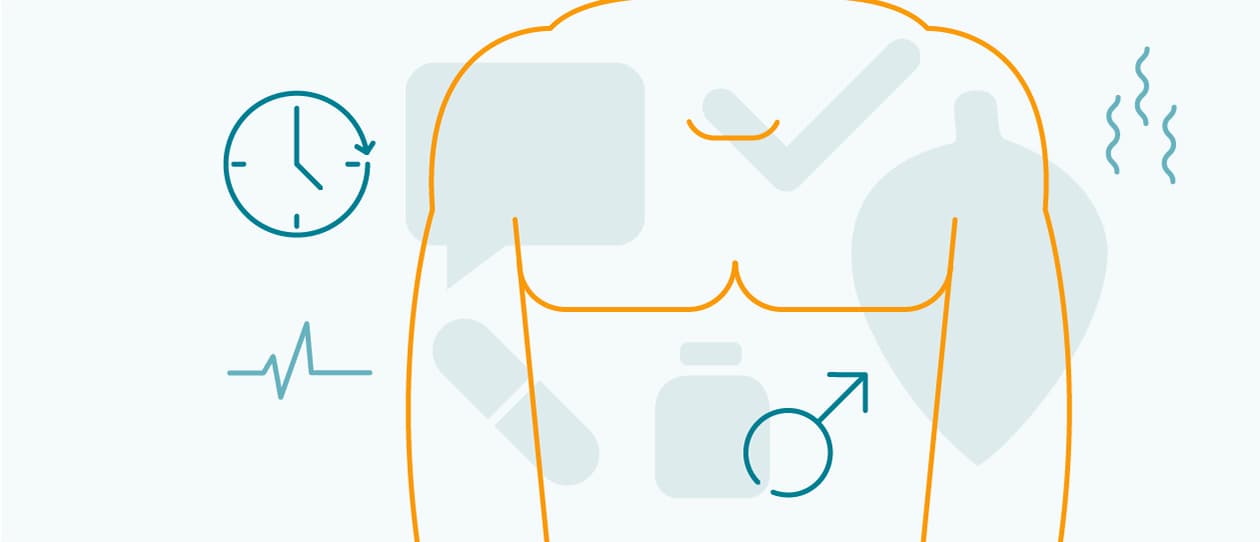
- Health hub/
- A Guide To Men's Health And Supplements/
- Benign Prostate Hyperplasia (BPH)


- More frequent urination, including nocturia (needing to get up to urinate frequently during the night)
- Urgency (the inability to postpone urination)
- Reduced force of flow
- Hesitancy (difficulty starting urination)
- Intermittent stream (stopping and starting); dribbling may occur at the end of urination
- Sensations of incomplete bladder emptying
BPH becomes more common as men age. The enlargement to the prostate occurs gradually, and may be largely the result of hormonal changes associated with ageing, such as decreases in testosterone, increases in oestrogen, and increased conversion of testosterone to a more potent form called dihydrotestosterone. This causes an overproduction of prostate cells, which in turn causes the prostate to enlarge.
The prostate surrounds the urethra, the tube through which urine flows, and as it enlarges, it obstructs the urethra, interfering with urination and the ability to completely empty the bladder.
Factors that influence male hormonal balance or the muscle tone of the prostate may play a role in BPH. These include eating a high fat diet, blood sugar imbalance, chronic inflammation and free radical activity.
Genetic factors may play a role, especially in cases with early onset.
BPH is more likely to affect men who do little physical activity, and those with abdominal obesity.
- BPH is more common in men who are obese and those who don’t exercise regularly. Achieving a healthy weight and keeping active may help to decrease your risk of BPH. Don’t start a new exercise regime without consulting your doctor first though.
- Follow a low-fat diet, as men who consume large quantities of fat are at increased risk of BPH. Make sure you eat some protein every day, but try to avoid large amounts of red meat, which may increase BPH risk - choose fish or soya products instead. Eating lots of vegetables (at least four serves per day) also appears to reduce your risk of BPH. In particular regular consumption of soy foods and cooked tomato products (an easily absorbed source of lycopene) may also be beneficial to support the health of the prostate.
- The moderate consumption of alcohol (2 drinks per day), may have a protective effect against BPH, but don’t drink to excess, as drinking large amounts of alcohol may reverse the effect and make you more likely to experience the condition.
- Stop smoking. Aside from the other health problems it causes, smoking makes it more likely that you’ll experience BPH.
- Avoid caffeinated soft drinks, and alcohol before bed, as they may exacerbate your need to get up during the night to urinate.
- If you experience any of the symptoms listed above, consult your healthcare professional who can arrange for the necessary examinations and blood test to help determine the nature of your condition.
- If you experience blood in the urine, painful urination, an inability to urinate, or urinary incontinence consult your doctor immediately.
- Many health authorities recommend that men over 40 years old be screened regularly for prostate cancer. Talk to your doctor for more information.




